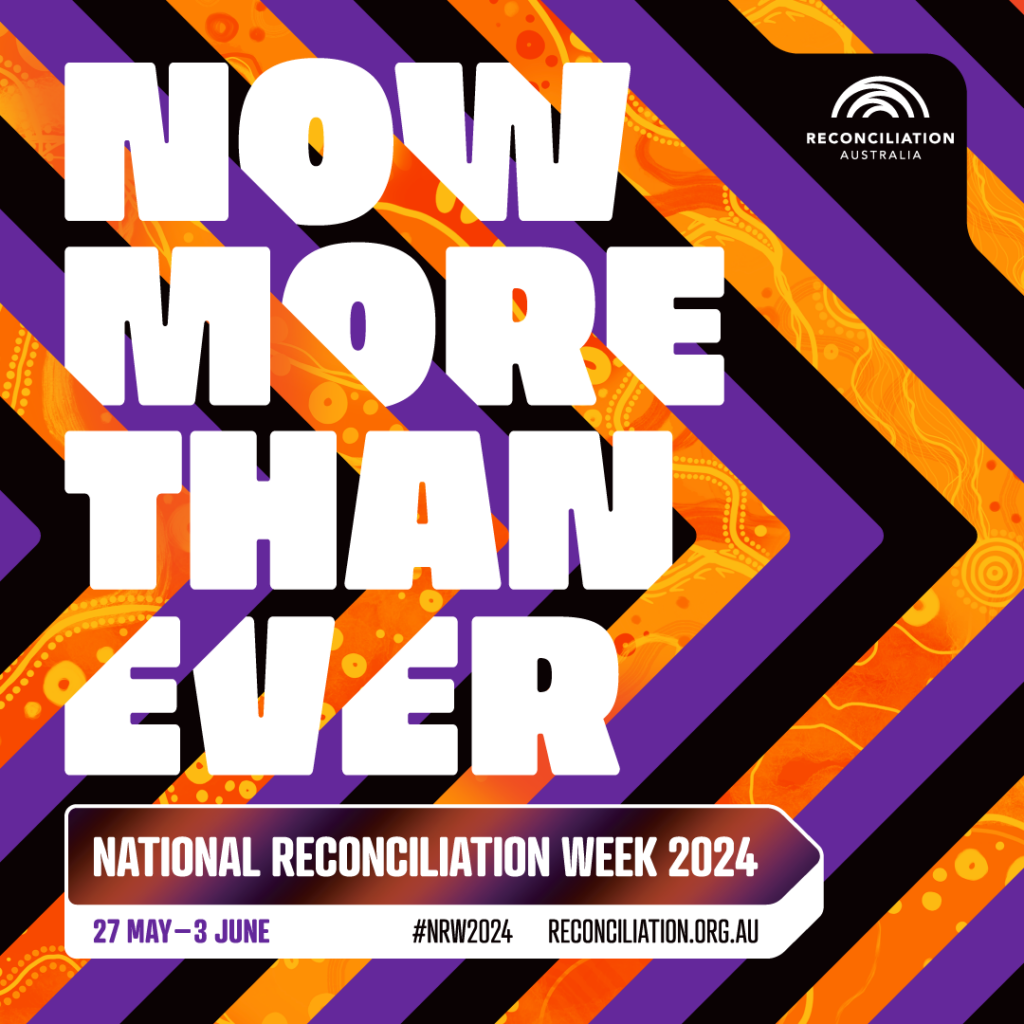 Written by Shona Reid, Guardian for Children and Young People
Written by Shona Reid, Guardian for Children and Young People
I’m going to be honest: it was hard going into Reconciliation Week in 2024.
As I sat around a table with my team at the National Reconciliation Week Breakfast, it was a struggle to reconcile the nearly 3,000 strong attendance with the results of the failed referendum in October last year.
The flurry of support for the reconciliation movement that comes from individuals, the public sector and corporate organisations this time of year feels in such stark contrast to the reality we are facing: 60% of Australian people who voted in the referendum said ‘No’.
While acknowledging this struggle, I fully embrace the theme for this year’s National Reconciliation Week. As this morning’s keynote speaker, Adam Briggs, so eloquently implored all of us in the audience – now more than ever, is the time to show up. Especially for our children and young people.
As we move from National Sorry Day into Reconciliation Week, now is the time to call out the ongoing impacts of the stolen generations and the racially discriminatory child removal practices we still see today. Whilst the work of many in driving progress does not go unnoticed, the harsh reality is that generations of Aboriginal and Torres Strait Islander children are still removed from their family and culture, more so than ever before.
The fight for justice and the rights of Aboriginal and Torres Strait Islander people – especially the futures of children and young people – must continue.
Now more than ever we need to make the system work for Aboriginal and Torres Strait Islander children and young people.
Now more than ever, we need to hone in on Closing the Gap and overcoming the entrenched inequalities faced by many Aboriginal and Torres Strait Islander peoples.
With one in eleven Aboriginal and Torres Strait children and young people in South Australia living in out-of-home care, our efforts to Close the Gap must be focused on improving outcomes for those in care across all targets, indicators and priority reforms. The quality of care we show Aboriginal and Torres Strait Islander children and young people in 2024 will be felt for generations to come.
The evidence is clear that children who grow up supported by their families and communities – and surrounded by culture – live longer, healthier, and happier lives. Connection to culture can build resilience within children and act as a barrier against the effects of trauma; culture is protective. Yet, despite this knowledge and commitment from all levels of government to the National Agreement, the latest Closing the Gap report shows that progress against targets is too slow and not enough to achieve the intent and purpose of the agreement in reducing the overrepresentation of Aboriginal and Torres Strait Islander children and young people in care – or the outcomes for their lives.
There is a way forward, but it requires us to question and hold to account the systems and practices we have come to accept. It requires a reimagining of the place we see for Aboriginal and Torres Strait Islander children and young people in our communities. It will require everyone to refuse to accept poorer outcomes for Aboriginal and Torres Strait Islander children who come into care. It requires a commitment to true reconciliation, a commitment to truth telling and understanding our history, a commitment to education and a commitment to combatting racism.
We all have a role to play when it comes to reconciliation, and in playing our part we can collectively build relationships and communities that value Aboriginal and Torres Strait Islander peoples, histories, cultures, and futures.
Reconciliation goes beyond plans and words; it requires us all to show up and commit to making the system work for Aboriginal and Torres Strait children and their families. Now more than ever, we need to commit to real change.
